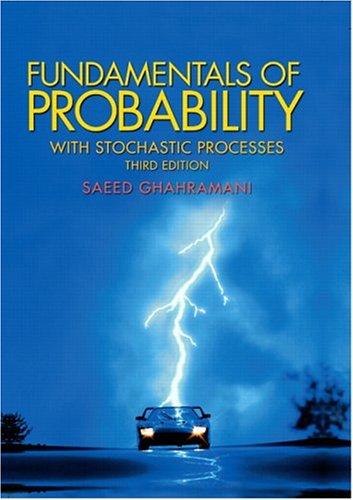4. Let {X1, X2,...} be a sequence of independent, identically distributed random variables. In other words, for
Question:
4. Let {X1, X2,...} be a sequence of independent, identically distributed random variables. In other words, for all n, let X1, X2, . . . , Xn be a random sample from a distribution with mean µ < ∞. Let Sn = X1 + X2 + · · · + Xn, X¯ n = Sn/n. Show that Sn grows at rate n. That is, lim n→∞ P ! n(µ − ε) ≤ Sn ≤ n(µ + ε) " = 1. B
Fantastic news! We've Found the answer you've been seeking!
Step by Step Answer:
Related Book For 

Fundamentals Of Probability With Stochastic Processes
ISBN: 9780131453401
3rd Edition
Authors: Saeed Ghahramani
Question Posted:






